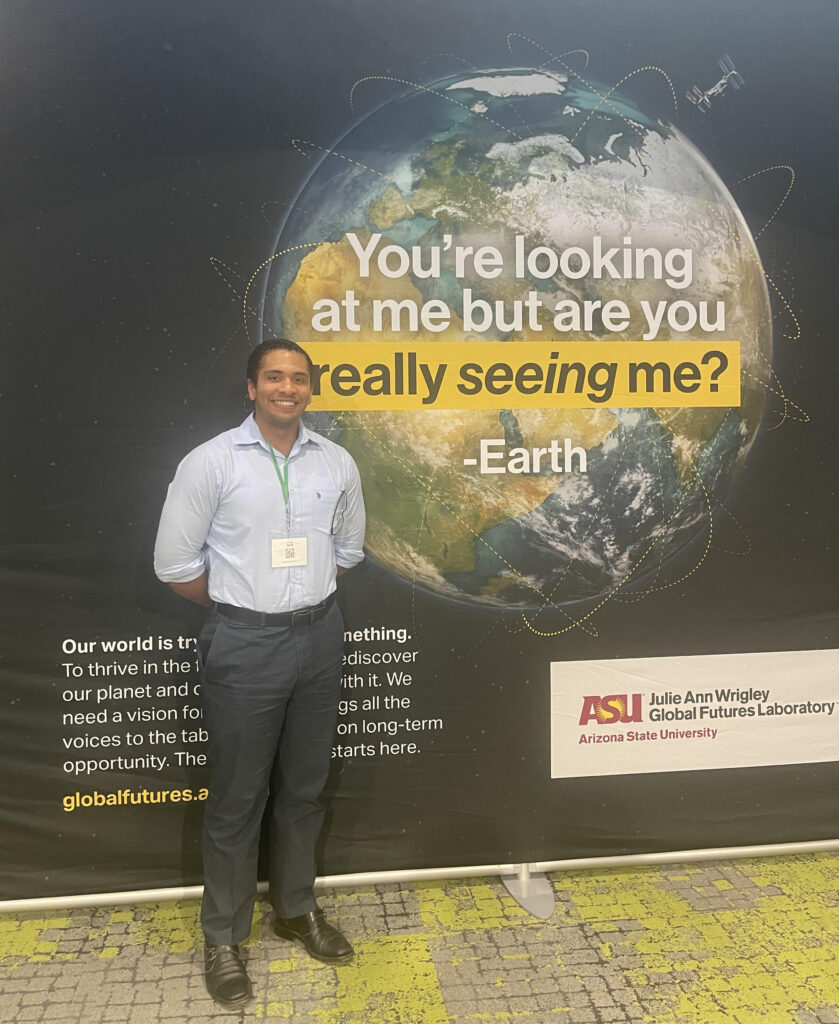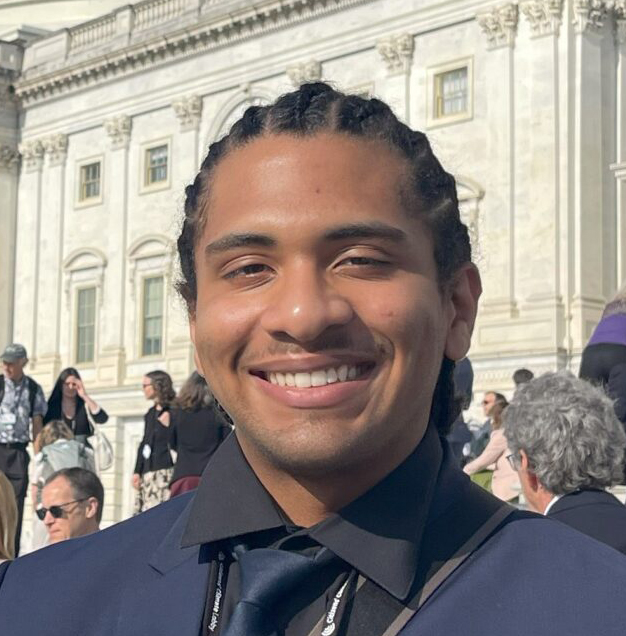By Attilio Abarca-Bodden, Citizens’ Climate Lobby
A recent conference at Arizona State University provided a platform for young people to influence national and global climate discussions at a critical time.
The Local Conference of Youth (LCOY) 2024 brought together more than 150 youth delegates from across the U.S., myself included. The event was an opportunity to draft a comprehensive climate policy statement to be presented at the 29th annual United Nations Climate Conference, known as COP29.
The stakes are higher than ever. We are, plainly put, in the middle of an extinction. Disastrous climate change effects are already present with record flooding, hurricanes and migration. This document that we drafted emphasized the role of U.S. youth in tackling climate change.
The dedication of the participants was clear, and the conference resulted in many bold policy recommendations. Even though it had its merits, as with any collaborative effort, the process revealed several areas for improvement that could enhance future youth conferences and lead to more effective outcomes.
Emphasis on inclusion and equity

The final policy recommendations from LCOY 2024 were ambitious and addressed a wide range of issues, such as a fossil fuel phase-out by 2031, significant investments in public transportation and solutions to advance climate justice for frontline communities. A lot of the drafted policy proposals reflected the urgency of the climate crisis and demonstrated the commitment of young people to addressing it.
The emphasis on youth inclusion and equity was a major strength of the conference. The call for a National U.S. Youth Office to ensure that young people are included in climate decision-making at the highest levels was a bold and necessary proposal. Additionally, the attention to Indigenous peoples, marginalized groups and low-income communities showcased a deep understanding of the intersectionality of climate justice.
LCOY also provided invaluable experience to many delegates, offering insight into the complexity of climate policy and the workings of international diplomacy. For many, it was a first step into the world of real-world policy advocacy, preparing them to become more effective climate leaders in the future.
More accountability needed
While aiming for inclusivity is good, the overly democratic nature of the process at times worked against its efficiency. To ensure the conference is more efficient, especially given the constant and unplanned time constraints, decision making should be structured based on delegate expertise.
For example, if you have experience with reducing emissions, you should not be working on climate finance. Allowing all participants to vote and work on every section, especially those outside their knowledge base and practical expertise, heavily diluted the effectiveness of the process.
Even after the conference, a vote was held on several different parts of the document. Only about a fifth of the delegates had the time to vote, and it was on different parts of the document. How do we even know if these delegates were fluent in all these sections on such an interdisciplinary problem?
Future conferences should attempt to limit voting and decision making on specific sections to delegates who are actively involved in and fluent with that section’s content. This would result in better-informed decisions and a higher-quality final document.
Another huge concern was the lack of facilitator accountability. Facilitators had the authority to move policies between sections and even make strikeouts under a single email, which should not have been allowed without proper oversight, or at least knowing who did it.
Facilitators should have introduced themselves clearly at the start of the conference and also been more transparent in their role and accountable for their decisions. Delegates should have the opportunity to challenge and question these decisions more openly, ensuring that important changes to the document are made with full consensus.
As the conference progressed, I realized that some delegates had been working on the document since the pre-draft phase, which gave them an unfair advantage in shaping its content. Moving forward, the same group of participants should be involved throughout the process, from pre-draft to finalization, ensuring that no one has a disproportionate influence on the document based on early involvement.
Another issue was excessive document strikeouts made without thorough discussion or justification. Delegates were striking out what others wrote on the document and leaving little to no reason in the side comments. The culture of the conference did not encourage debate, but rather “consensus,” even though this problem is the most urgent in human history.
To prevent this, a moderator should oversee all strikeouts and ensure that every deletion is justified factually before being finalized. This would create a more laser-focused document.
Finally, even though everyone in the room was aware of how bad climate change is and the effects of it, I feel as though there should still be a review of the stakes before the conference process begins to remind everyone in the room that we are working on preventing our extinction.
We need accurate facts, objective review and precision with our breakout sessions for our future as youth, because we are the leaders of tomorrow.
LCOY should set example

LCOY 2024 was a powerful example of youth-led climate advocacy, but it also highlighted the need for more structure, expertise and accountability. As youth from the United States, we have a unique responsibility to set the standard for climate action, particularly given the disastrous damage the U.S. has contributed to the global climate crisis.
Our LCOY should set the example for youth climate conferences globally, demonstrating a commitment to both bold ideas and well-informed processes. By addressing these issues, we can ensure that future conferences produce even more impactful and achievable climate policy proposals, with U.S. youth leading the charge in global climate leadership.
Attilio Abarca-Bodden is Broward chapter leader for Citizens’ Climate Lobby. Banner image: Young people participate in a climate protest (Mark Dixon, CC BY 2.0, via Wikimedia Commons).
If you are interested in submitting an opinion piece to The Invading Sea, email Editor Nathan Crabbe at ncrabbe@fau.edu. Sign up for The Invading Sea newsletter by visiting here.



